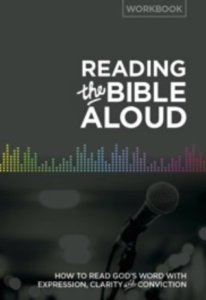Paul commands Timothy in 1 Timothy 4:13 to “devote yourself to the public reading of Scripture. . . .”
Why be devoted to the public reading of Scripture?
Let’s take a look at the theological foundations of public Scripture reading and some ways to give Scripture a more prominent place in public gatherings.
From the beginning of the Bible (Genesis 1:3), we see that God speaks, and His word is powerful and life-giving. At the end of the Bible, we see that a word from God ushers in the culmination of history (Revelation 21:2-4). In contrast to idols that cannot speak or do anything (Psalm 115:3-8), we serve a God who speaks and who has ultimately spoken to us by His Son (Hebrews 1:1-2), the Word made flesh (John 1:14-18).
Because God has spoken, we know His words were worth writing down to be remembered for all of time. God shares with us in Scripture that His Word has two audiences in mind: the original audience and future generations (Romans 15:4).
“. . . [M]an does not live on bread alone but on every word that comes from the mouth of the LORD” (Deuteronomy 8:3, NIV). Through the Word, we are made wise unto salvation, trained in righteousness, and equipped for every good work (2 Timothy 3:14-17). We proclaim God’s Word through preaching and public readings because we long to hear from God so we can love Him, trust Him, obey Him, and receive life. To put it more simply: when Scripture is read, God’s voice is heard.
In addition to Paul’s command to Timothy, the Bible offers several examples and additional commands relating to the public reading of Scripture. Here is a sampling:
Tim Keller writes in the foreword to Unleashing the Word (see suggested resources):
“In most church services the reading of the Word is poorly and hurriedly done. What a missed opportunity! The public reading of God’s Word is an interpretive act that takes skill and thought and has historically been understood as means of grace equal with preaching and sacraments.”
As people who take the Word of God seriously, let’s take public Scripture reading seriously.
1. Study the passage.
Studying the passage (and reading it over several times) helps you understand it better so you know what it communicates and how it communicates it. Simon Roberts suggests that readers “mark important words, bracket groups of words that belong together, and highlight important connecting words (e.g. ‘but’, ‘therefore’, ‘so’, ‘then’).”
It might be worth dissecting the structure and looking for a main idea as well. If there are any words you are unsure how to pronounce, ask others for help, or listen to an audio Bible on Bible Gateway for suggested pronunciation.
2. Practice reading the passage aloud.
Max McLean suggests, “Practice your delivery aloud until you feel ready to present it as if you’re having an animated conversation with a good friend.” McLean also advises paying attention to pause, pace, pitch, volume, and breathing. As you practice, you might record yourself to hear how you’re doing. Most phones now have voice recorder apps.
3. Make your inflection reflect the intent of the original author.
“When I read, I also go over the text multiple times,” writes McLean. “I think about how I will phrase the line so I can determine my inflection: the way I change my pitch or the loudness of my voice as I read a particular word or phrase. In my readings, getting the right inflection is one of the essential keys to communicating the meaning of the text.”
He continues, “The proper inflection helps me find the emotional undertow within the text. It connects the passage more viscerally to the congregation. While we certainly want hearers to connect at the head level, understanding the meaning of each thought block in the text, we also want them to go deeper and gain an understanding of the author’s motivation and intent at that moment.”
4. Pray that the Spirit would open eyes to see the glory of Christ.
The goal of Scripture reading is to behold the glory of Christ and be transformed into His image. Pray for listeners to experience our Risen Lord through His Word and for them to long for His Kingdom. Pray for the evils of sin to be exposed in hearts and the grace of Christ to be magnified.
You might also benefit from: 3 big ideas and 7 tips on how to read the Bible in church by Simon Roberts (GoThereFor)
 Suggested Resources:
Suggested Resources: